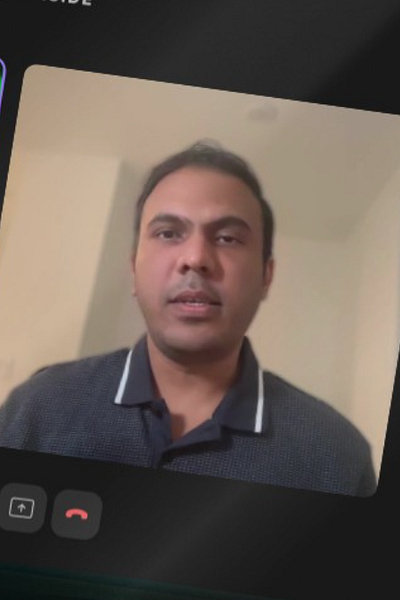70% Auto-Generated Code: The Future of Software Teams (feat. Clive Dsouza)
A senior engineer shares how AI tools now generate most of his initial code, transforming development speed and workflow. He explains how this shift is reshaping team structure, & skill requirements.
Clive Dsouza brings over 16 years of experience in IT, including significant contributions at major retail companies like Target and Lowe’s. He introduces the concept of real-time server-driven web components, highlighting the current landscape where most e-commerce sites, such as Amazon, utilize static components to display product recommendations. These static elements often fail to provide a personalized experience, displaying the same generic recommendations regardless of individual user behavior.
This conversation explores the rapid evolution of technology and its profound impact on developers. It discusses the changing landscape of work in the tech industry, the importance of adapting to new tools, and the role of AI in development. The speakers emphasize the need for developers to embrace change and navigate job security concerns in a world where 70% of traditional roles may be replaced.
Takeaways
The tech industry is evolving at an unprecedented pace.
Developers must adapt to new tools and technologies.
AI is playing a significant role in transforming development.
Job security is a growing concern for many in the field.
Embracing change is essential for future success.
The notion of being irreplaceable is becoming outdated.
70% of developers may find their roles altered or replaced.
Continuous learning is crucial in the tech landscape.
Collaboration with AI can enhance productivity.
The future of work will require a shift in mindset.
Podcast
Summary
🏗️ Background & Patent Work
Patent Work at Target
Built a digital data collection system from scratch
Tracked UI events (page loads, clicks, impressions)
Sent metadata to backend pipelines (Kafka → visualization in Kibana)
Used by analysts for personalization, insights, and recommendations
⚙️ Tech Stack
Frontend: React, TypeScript
Backend: Scala
Role: Full-stack engineer, frontend-leaning
🤖 AI & Development Workflow Transformation
How coding changed in 18 months
Before: Hand-writing code + unit tests
Now: Uses Cursor, Claude, Copilot-style tools to:
Break tasks into subtasks
Generate component scaffolding
Create unit tests
Speed up iteration cycles
AI impact
AI now generates 60–70% of initial code
Developer focuses on refining, reviewing, and ensuring quality
Dramatically faster development cycles
👥 Engineering Team Evolution
Clive’s view on future engineering teams:
Smaller teams, higher output
Composition shifts toward mid-level and senior engineers
Prompt engineering becomes essential
Early-career engineers face more difficulty entering the industry
Team example shift
10-dev team → could become ~7-dev team with same output
Or same team delivers 10x more features instead of fewer
🧠 Skills That Matter Going Forward
Prompt engineering
Understanding system logic and architecture
QA and validation — verifying AI-generated output
UX thinking and user empathy
💡 UX & Future Interfaces
Discussion on:
Whether Amazon-style UIs will dramatically change
Conversational interfaces emerging in tools
AI-driven components replacing static pages
Systems assisting users instead of users navigating menus
Clive expects gradual UX evolution; Krish anticipates a dramatic shift.
✅ Closing Thoughts
AI is a multiplier, not a replacement — yet
Engineers become curators, validators, and orchestrators
Future belongs to hybrid technologists pairing:
Human creativity
AI execution power


